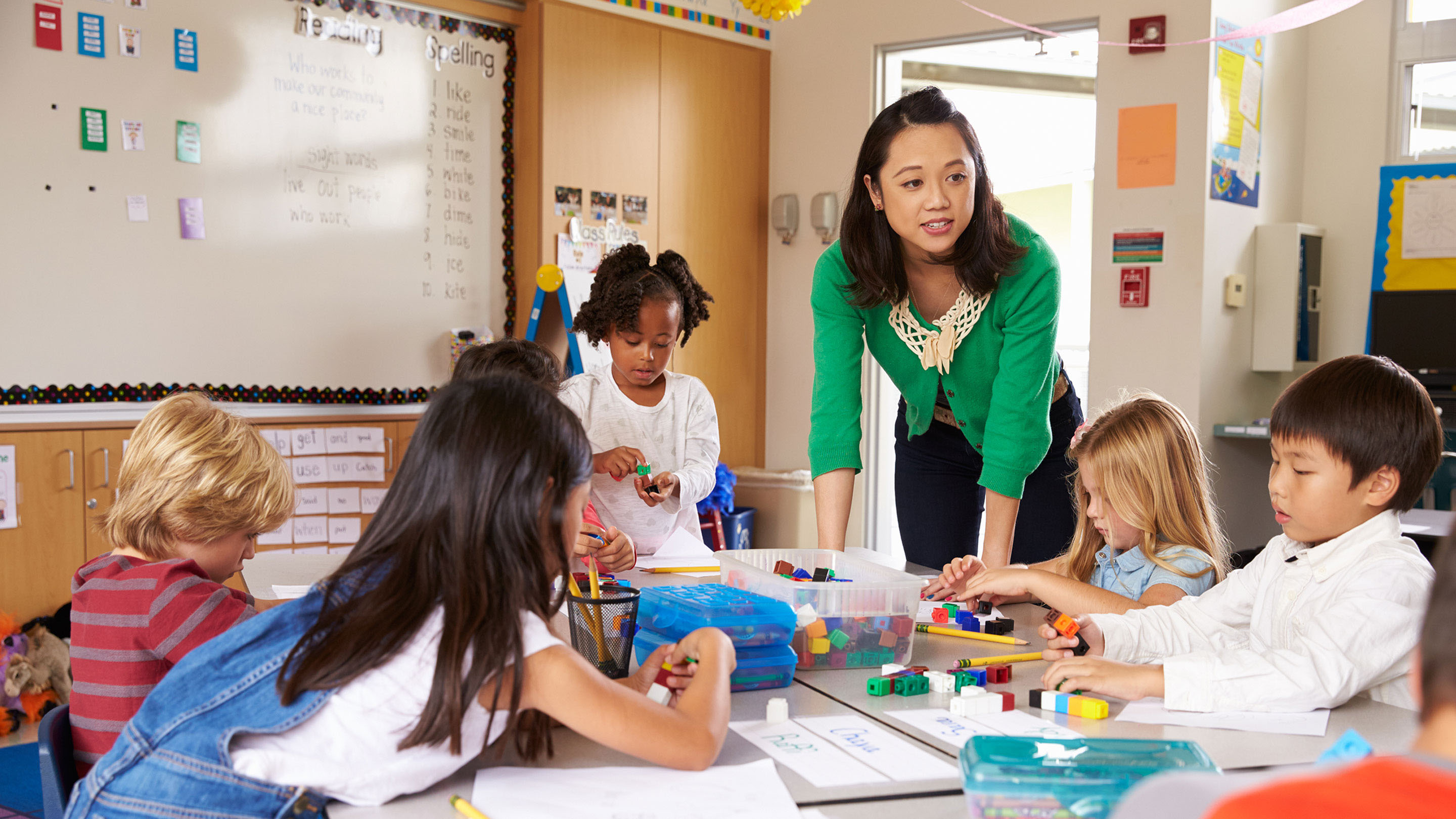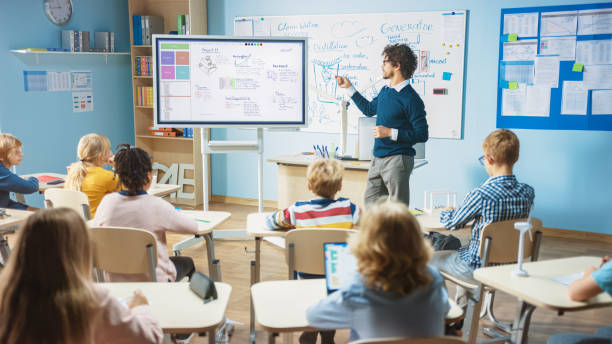Enroll in Primary Science Tuition Singapore for a Strong Science Foundation
Enroll in Primary Science Tuition Singapore for a Strong Science Foundation
Blog Article
Discovering the Different Teaching Methods in Main Science Education Today
The landscape of main scientific research education is advancing, with various teaching approaches acquiring importance in contemporary classrooms. Inquiry-based discovering, hands-on experiments, and the combination of modern technology are redefining exactly how educators involve young minds. Additionally, collective strategies and distinguished instruction are being employed to satisfy the diverse demands of trainees, boosting both interaction and understanding. As we examine these methodologies, questions arise concerning their efficiency and the ramifications for future instructional methods. What might these changes in approach mean for the next generation of learners?
Inquiry-Based Knowing
Inquiry-Based Discovering (IBL) is a pedagogical technique that encourages pupils to check out scientific concepts via wondering about, examination, and hands-on trial and error. This method highlights the function of pupils as energetic individuals in their understanding, advertising essential reasoning and analytical abilities. By engaging with real-world questions, pupils become curious and motivated, which boosts their understanding of clinical principles.
In IBL, educators work as facilitators, assisting pupils as they navigate their queries as opposed to providing information directly. This student-centered strategy allows for differentiation, accommodating numerous learning styles and speeds. Pupils create abilities in formulating hypotheses, designing experiments, and analyzing data, which are important for scientific literacy.
Additionally, IBL cultivates collaboration among students, motivating them to share ideas and findings. This cumulative inquiry advertises social abilities and a feeling of community within the class. The process of inquiry urges resilience, as students find out to welcome failing as a tipping rock towards understanding.
Hands-On Experiments
Hands-on experiments are a vital component of reliable scientific research education, complementing the principles of inquiry-based knowing. These experiments enable trainees to engage straight with scientific principles, cultivating a much deeper understanding with experiential discovering. By manipulating materials and observing outcomes, young learners can realize abstract theories in substantial means.
Such activities promote vital thinking and problem-solving abilities, as trainees assume results, conduct experiments, and assess results. This process encourages them to ask inquiries, refine their understanding, and develop a clinical way of thinking. Additionally, hands-on experiments can be tailored to varied learning styles, making sure that all pupils have the possibility to involve meaningfully with the material.
In addition, hands-on experiments commonly urge cooperation amongst peers, promoting synergy and interaction abilities. Operating in teams enables trainees to share concepts, review searchings for, and gain from each other, which enhances their overall academic experience.
Incorporating hands-on experiments into the key scientific research curriculum not only enriches the finding out atmosphere yet likewise grows a lifelong passion in science. By proactively taking part in their education and learning, students are much more likely to create a passion for clinical inquiry that extends beyond the class.

Modern Technology Integration
Integrating modern technology right into main scientific research education has come to be progressively vital in promoting trainee involvement and enhancing learning outcomes. Making use of digital tools, such as interactive simulations, digital labs, and educational software, supplies trainees with opportunities to check out scientific concepts in cutting-edge methods. These sources facilitate a deeper understanding of complex topics by allowing students to visualize and control variables that would be impractical in a traditional class setting.
Additionally, modern technology integration encourages individualized finding out experiences. Trainees can proceed at their very own rate, revisiting difficult ideas through multimedia sources, which deal with various learning designs. This adaptability not only supports individual growth however also cultivates a feeling of freedom in students.
Additionally, innovation serves as a bridge to real-world science, linking students with current study and specialist payments. Access to clinical journals and on-line data sources widens trainees' viewpoints on clinical query and cultivates crucial believing abilities.
Collaborative Knowing
Collaborative discovering plays an essential function in primary scientific research education by cultivating synergy and communication abilities among students. This technique motivates students to interact, share understanding, and take part in problem-solving, which boosts their understanding of scientific concepts. By getting involved in group activities, students learn to articulate their concepts, pay attention to varied perspectives, and negotiate options, every one of which are crucial abilities in both scholastic and real-world contexts.

Research shows that joint knowing can cause boosted motivation and interaction in scientific research topics, as pupils discover satisfaction in common experiences (primary science tuition Singapore). In addition, this technique prepares trainees for future joint undertakings, furnishing them with the abilities essential for efficient synergy in greater education and learning and professional atmospheres. Eventually, accepting collective knowing in key science education can dramatically enrich the knowing experience and promote a much deeper understanding of scientific query
Differentiated Guideline

Separated instruction can manifest in numerous methods, such as differing the material, procedures, or products of understanding. Educators may use tiered projects that give differing levels of intricacy, permitting pupils to work at their corresponding preparedness degrees. In addition, versatile grouping methods can facilitate partnership amongst pupils with different capabilities, promoting peer learning.
Assessment plays an important duty in this technique, as it notifies guideline and aids educators recognize each student's one-of-a-kind requirements. Developmental evaluations, such as observations and tests, can direct teachers in changing their strategies to boost learning outcomes. primary science tuition Singapore. Ultimately, by executing distinguished direction in browse around this web-site main science education and learning, teachers can cultivate a much more equitable and effective understanding setting, equipping all trainees to reach their full capacity in comprehending clinical sensations
Conclusion
In summary, the varied training methods in main science education, including official source inquiry-based learning, hands-on experiments, innovation combination, collective learning, and differentiated direction, jointly add to an extra reliable learning setting. These techniques advertise essential thinking, analytical skills, and a deeper understanding of clinical principles. By implementing these methods, teachers can develop helpful and appealing classrooms that attend to the diverse demands of students, ultimately cultivating a long-lasting passion in science and boosting scholastic success.
Inquiry-Based Discovering (IBL) is a pedagogical technique that motivates trainees to check out scientific concepts via questioning, investigation, and hands-on testing.Collaborative learning plays a vital function in primary science education by cultivating teamwork and interaction abilities among pupils.Research study indicates that joint learning can lead to enhanced inspiration and engagement in scientific research topics, as students find satisfaction in common experiences.In fostering a comprehensive discovering atmosphere, separated guideline arises as a key strategy to accommodate the varied demands and capabilities of students in main science education and learning. Eventually, by applying distinguished instruction in key scientific research education, teachers can cultivate a more effective and equitable knowing atmosphere, empowering all students to reach their full capacity in comprehending scientific sensations.
Report this page